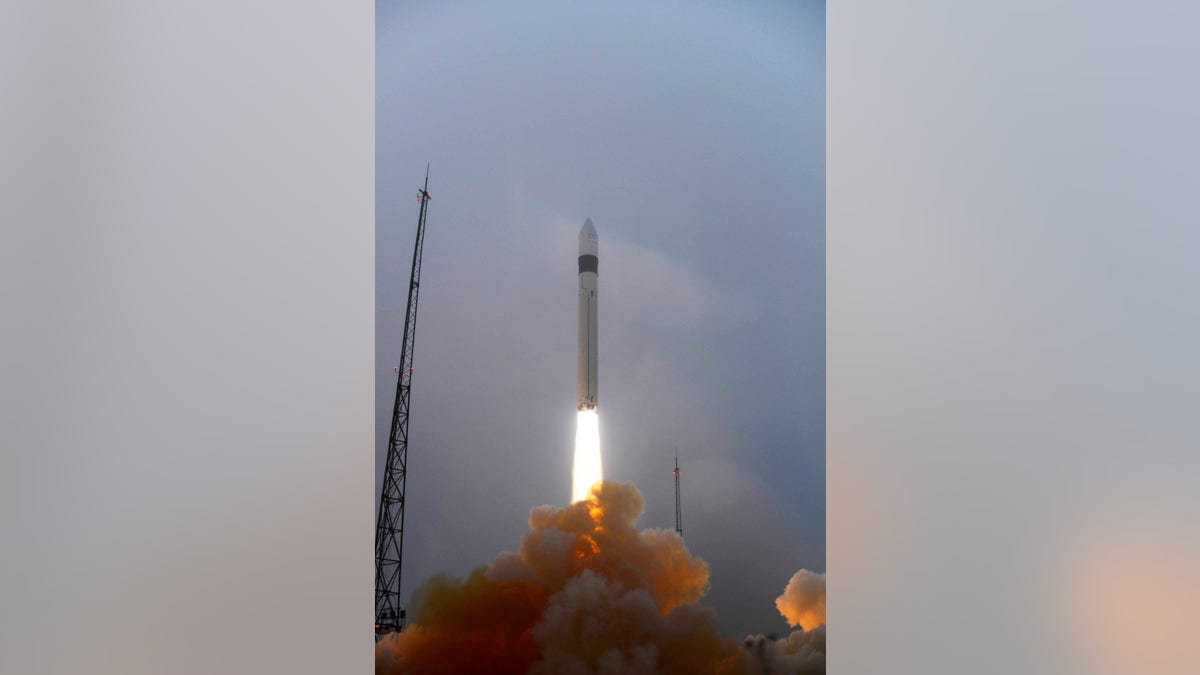
PLESETSK SPACEPORT, RUSSIA - NOVEMBER 22: In this handout photo released by the European Space Agency (ESA), the Russian Rockot launcher lifts off with the ESAs three-satellite Swarm constellation November 22, 2013 from the Plesetsk spaceport.The satellites will be used to monitor Earths magnetic field. (Photo by Stephane Corvaja/ESA via Getty Images) (2013 ESA-S.CORVAJA)
Nicaragua’s legislature gave the go-ahead to allow Russia to place satellite bases for civilian purposes in the Central American country.
Despite pleas from opposition leaders, who called it a “white elephant,” the measure passed easily on Tuesday and paves the way for Russia to set up land stations in the country for its satellite system, known as Glonass, following an agreement between the nations signed in 2012.
Supporters say that the base will help Managua and Moscow exchange scientific and cultural information on climate change and agricultural production, while Independent Liberal Party Congresswoman María Sequeira, who voted against the measure, told Agence France-Presse that Russia needs to focus its work with Nicaragua on developing democracy, “and not going around with white elephants that don’t do anything for the people and rather make them afraid and wary.”
Nicaragua and Russia strengthened their relationship after President Daniel Ortega returned to power in 2007, and their ties grew when Nicaragua recognized the independence of South Ossetia and Abkhazia from Georgia during that country’s conflict with Russia. The government of Vladimir Putin has provided economic, military and anti-drug trafficking support to Nicaragua as well as help with disaster assistance.
Russia’s continued moves in Nicaragua are part of a greater push in Latin America, and while most observers agree that this won't create the geopolitical uproar that it might have at the height of the Cold War, there are concerns that its influence could create problems for U.S. policy in the region.
"U.S.-Russian relations are at a low that we could not have expected at the end of the Cold War," Jason Marczak, the deputy director at Atlantic Council's Adrienne Arsht Latin America Center, told Fox News Latino. "Russia doesn't really have the ability right now to have a real presence in Latin America, but they can spark concern in Washington that Russia is on the rise in the region."
Many U.S. lawmakers were already rankled by joint Russian-Venezuelan military drills to be conducted in the southern part of the Caribbean near U.S. territorial waters – for later this year. And recent rumors of proposed military aircraft sales to Nicaragua and Venezuela have caused concern among many U.S.-friendly countries.
"The Russian military's sales to countries should worry the U.S. because it will create a military imbalance in the region," Marczak said. "It could start a small-scale arms race."
Last month, Nicaraguan Army inspector general Adolfo Zepeda Martínez said the country had "taken a few steps to obtain interceptor fighters" in an attempt to catch drug flights and described the planes as "completely defensive, not attack aircraft." While no word of what type of jet the country is looking to obtain from Russia, there is speculation from media in both countries that it would be the $29 million MiG-29.
The acquisition of Russian fighter jets would greatly increase Nicaragua's chances of becoming the region's biggest air power – with Colombia's aging C7 Kfir fighters from Israel and Cessna A-37 Dragonfly and Honduras' Super Tucano turboprop combat planes being unable to match the MiG's firepower.
The reported sale has drawn protest from Nicaragua's neighbors about the jets' purported use in combating drug trafficking.
"One doesn't combat drug trafficking with that kind of heavy military equipment for fighting wars," said McClatchy quoted Costa Rican Foreign Minister Manuel González, as saying.
